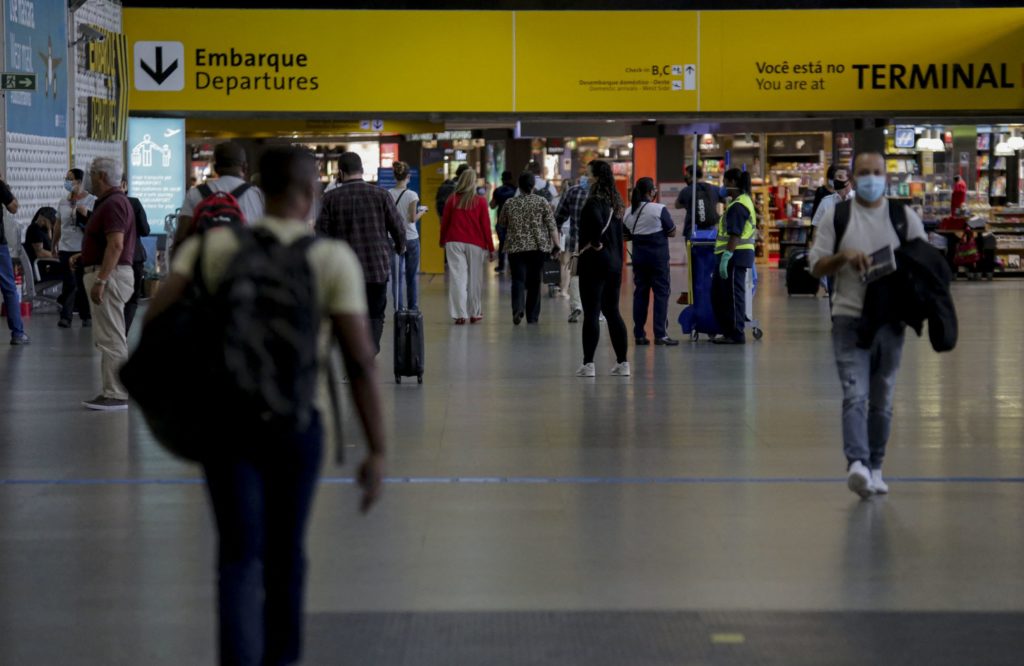Brasília – The federal government on Monday (20) published an ordinance requiring all travelers coming from other countries to present a negative test for COVID-19 and proof of vaccination when entering Brazil by air. The new rules came into force on Monday.
According to the inter-ministerial ordinance, all vaccines approved in Brazil, by the World Health Organization (WHO) or by the traveler’s country of origin will be accepted. The last (or single) vaccine dose should have been administered at least 14 days before departure.
Other ordinance requirements for foreign and Brazilian travelers coming to the country are the presentation of a negative COVID-19 test taken within 24 hours before departure (if an antigen) or within 72 hours (if a RT-PCR).
Children under 12 traveling with a companion are not required to present a negative test, while children from 2 to 12 years that traveling without a companion are required to do the test.
Exceptions
The ordinance provides for some exceptions for presenting proof of vaccination such as in cases of health conditions when the vaccination is contraindicated, people at ages when vaccination was not recommended and from countries with a low vaccination coverage whose list was drafted by the country’s Ministry of Health and published on its website.
People exempted from presenting a vaccine passport must undergo a 14-day quarantine in the destination city, according to the text. Travelers must also complete the traveler’s health declaration (document in which they attest to their health status and agree to comply with sanitary measures) within 24 hours before departure.
Land transport
In case of land transport, proof of vaccination will also be required at the ground control points with vaccines approved in Brazil, by the World Health Organization (WHO) or by the traveler’s country of origin.
Exception established for proof of vaccination in case of flights also apply to entry by road. The exception was added for twin cities (those that are located next to each other in different countries), as long as the Brazilians receive the same treatment in the neighboring country.
Translated by Guilherme Miranda




